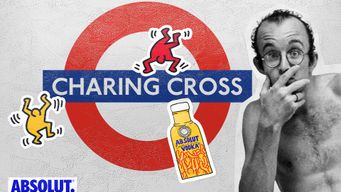The Federal Trade Commission's Enforcement Policy Statement on U.S. Origin Claims says that if you're going to make an unqualified U.S.-origin claim about a product, you must be able to substantiate that it was "all or virtually all" made here. But what about advertisements that claim that a product was made in a particular state in the United States? Does the FTC's guidance apply to those types of claims?
Recently, the FTC closed an investigation into advertising by Seaside Casual Furniture. In its closing letter, the FTC expressed concerns that Seaside Casual's marketing materials may have overstated the extent to which its outdoor furniture products are made in the United States, since some of its products incorporate significant imported materials. Although the closing letter doesn't get into much detail about the FTC's specific concerns, it appears that the claims that the FTC was concerned about were Seaside Casual's "Made in Rhode Island" claims.
In its letter, the FTC explained that, "unqualified U.S.-origin claims in marketing materials -- including claims that products are 'Made' or "Built" in the USA or any state or geographic region therein -- likely suggest to consumers that the products advertised in those materials are 'all or virtually all' made in the United States" (emphasis added). The FTC then goes on to explain that, "it is appropriate for Seaside Casual to promote the fact that it has operated in Rhode Island for many years and continues to employ workers to perform certain operations there. However, depending on the net impression conveyed, the Company may need to include prominent qualifications to avoid implying that products advertised are “all or virtually all” made in the United States, unless that becomes the case."
This closing letter makes pretty clear, then, that the FTC is applying the same standard to claims that a product is made in a particular state that it would apply to claims that the product is made in the United States -- at least as it relates to foreign content.
And what about the FTC's new Made in USA Labeling Rule, which codifies the FTC's "all or virtually all" standard? Since the Rule covers "any other unqualified U.S.-origin claim," it's likely that the Rule would also govern claims that a product is made in a particular state as well.
As you would expect, this isn't the first time a marketer's local origin claims have been challenged. If you're interested in reading about some other examples, check out our prior blog posts about products that may have been made in Brooklyn, Boston, and Hawaii.


/Passle/5ca769f7abdfe80aa08edc04/SearchServiceImages/2025-12-11-21-58-26-997-693b3e82641ff44fb22be187.jpg)
/Passle/5ca769f7abdfe80aa08edc04/SearchServiceImages/2025-12-09-16-09-55-496-693849d32b43241fe162ee63.jpg)
/Passle/5ca769f7abdfe80aa08edc04/SearchServiceImages/2025-12-09-16-00-22-911-693847962b43241fe162e049.jpg)
